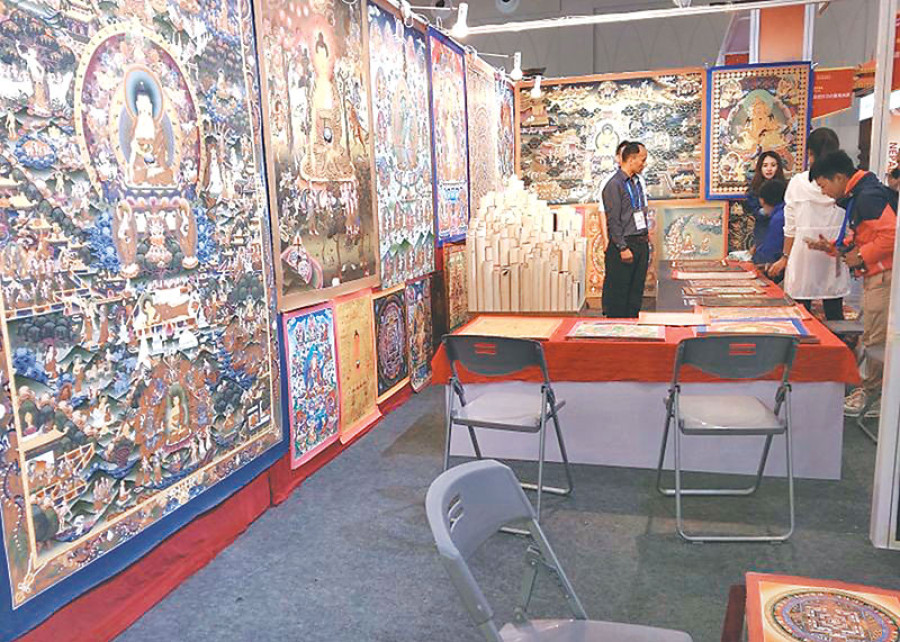Money
Export earnings of carpet, garment down
Export earnings of woolen carpet and readymade garments—products that are among the country’s main exportable items- both declined by 8.3 percent and 9.7 percent respectively in the first 11 months of the current fiscal year.
Export earnings of woolen carpet and readymade garments—products that are among the country’s main exportable items- both declined by 8.3 percent and 9.7 percent respectively in the first 11 months of the current fiscal year.
The decline was blamed on lack of government incentives, low productivity and lack of price competitiveness in the international market.
According to Trade and Export Promotion Center (TEPC), Nepal exported woolen carpets worth Rs6.72 billion, down from Rs7.33 billion over the review period. Similarly, exports of readymade garments fell to Rs4.72 billion from Rs5.23 billion.
These Nepali products have failed to post positive export results in the past few years.
Anup Bahadur Malla, president of Nepal Carpet Exporters’ Association said international market for Nepali carpet has been affected recently due to the penetration of Indian products mainly in the European market. According to him, the European market is one of the main destinations for the bulk selling of Nepali products. Malla said that Nepali product being expensive compared to the products of the neighbouring country was the main reason behind the problem. “Compared to our local products, the products of our southern neighbours are cheaper by 30-40 percent,” he said.
Carpet exporters blamed a lack of government incentives for the fall in export value. At present, the government has been providing 2-4 percent cash incentives to the country’s exportable goods. “The incentive is far less compared to those provided to our competing products in neighbouring country.”
Likewise, the government failing to provide the subsidy to the traders participating in the trade fairs organised abroad has also been pointed out for the falling exports of Nepali carpet.
As per traders, the government has now stopped providing the subsidy for participating in the international trade fairs. The government’s subsidy for such traders used to account up to 50 percent. Malla said the high-end Nepali carpets are still in high demand in places like US and Germany. According to him, the products made out in more than 100 knots and manufactured with pure silk and other natural fibers are of high quality that deserve a high price.
Likewise, the readymade garment also posted dismal figure regarding its export during the review period. Garments exporters also blamed high production costs behind the falling export of Nepali products.
Chandi Prasad Aryal, president of Garment Association of Nepal, said the high costs of raw materials had helped the Nepali products lose their competitiveness in the main export destinations. Garment manufacturers import raw materials from China, India, Taiwan and South Korea among others.
Aryal said the US government scrapping the duty free quota facility in Nepali products has also affected the market for Nepali products in the US. “Due to these reasons, we are unable to compete with cheaper products supplied from countries like Bangladesh,” he said.




 20.12°C Kathmandu
20.12°C Kathmandu












